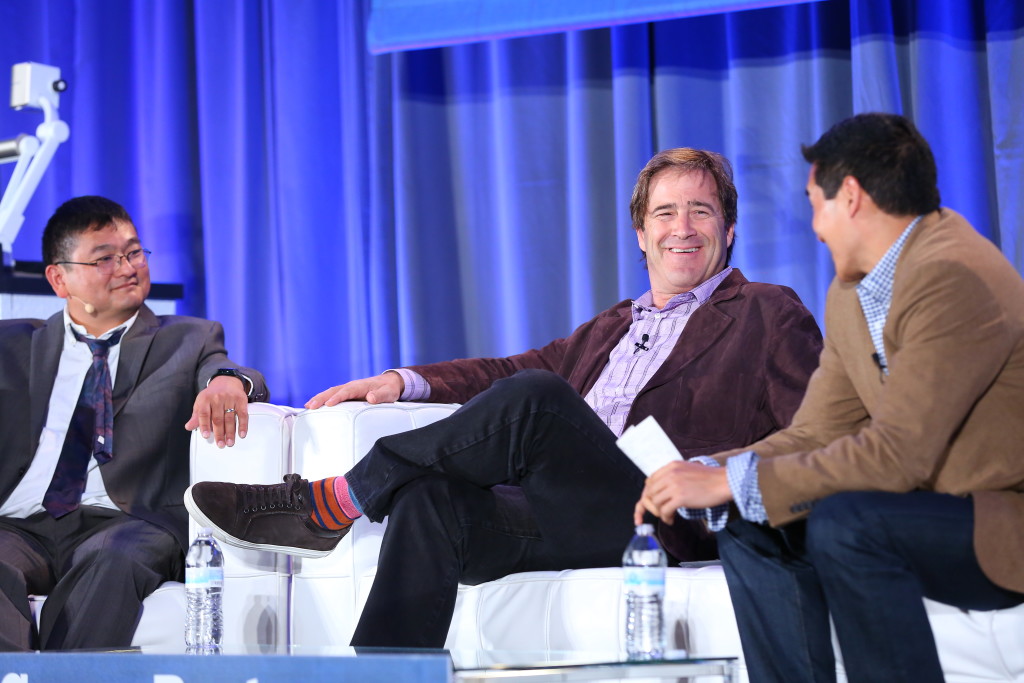Another GamesBeat is just around the corner and Dean Takahashi, veteran games journalist and lead writer for VentureBeat’s gaming-focused section has been hard at work organizing the annual industry event. Dean took time to answer a few burning questions we had about the event and its Game of Thrones theme and what trends will have the biggest impact on the industry this year.
GamesBeat is now in its seventh year and in that relatively short span of time in the scheme of things, the games industry has gone through so many changes. How has GamesBeat as an event evolved to stay on the crest of these changes?
When we started in 2009, social gaming on Facebook was hot, and many of our speakers reflected that. The heat shifted to mobile gaming on the iPhone, and our next conferences also followed that. Social casino games became hot. So did the next-generation consoles and League of Legends. Now it’s eSports and virtual reality. Each year, we try to anticipate the trends and the newsmakers, and we begin talking with potential speakers early. We know what’s hot because we write about that news every day. We see lots of fundings and acquisitions happen in China, and it’s not hard to detect the big wave of interest in that market. We also use an advisory board from the industry to tell us what’s going to be the next issue or theme to focus on. Our topic is always gaming, but covering what is at the leading edge of gaming keeps changing.
The focus this time is on gaming’s international explosion in and on sustainability in the business. What was behind the decision to focus on these key subjects?
We’re going where the game industry is going and much of the news in the past year has focused on these topics. Gaming’s opportunity has never been bigger as mobile and online games find audiences all around the globe. At the same time, the competition has never been tougher. So even as opportunity abounds, the challenge of growing a profitable game company has never been tougher.
What should attendees expect from this year’s event?
They’ll hear plenty of thought-provoking talks from the leaders of the industry, across categories such as finance, monetization, virtual reality, augmented reality, game development, eSports, mobile gaming and consoles. We’ve also got more women speaking than ever before, and we’ll be probing into the uncomfortable topics related to Internet hate and the lack of diversity. We also have hopeful talks about the future of gaming technology, brands in games, creativity and user-generated content.
In your mind, what are the most important trends in gaming that will have the biggest impact on the industry?
I would say that the wheels of diversity have finally started rolling, and that will play out in many ways. We’ll have new focus in diversity of skills, ideas, game characters and audiences. We’re also just at the beginning stages of figuring out what is a true global gaming company.
The theme this year looks at gaming s many kingdoms or realms from mobile and console to PC and so forth. Is this comparison of the industry to Game of Thrones apt?
We chose Game of Thrones as our theme because the competition is cutthroat, particularly in mobile where the market has consolidated around a handful of winners, after a very Darwinian process that started out with great hopes for indie game makers. Game companies have to constantly adapt, and some are doing it by increasing their budgets for mobile game development and user acquisition. Others are adapting by moving into new markets such as virtual reality, or making sure that their games are eSports-friendly. We’ve also see that the U.S. and Japanese game makers are no longer dominant. With mobile, we’ve finally reached a true global market, and companies from Helsinki to China are now the potential leaders.

